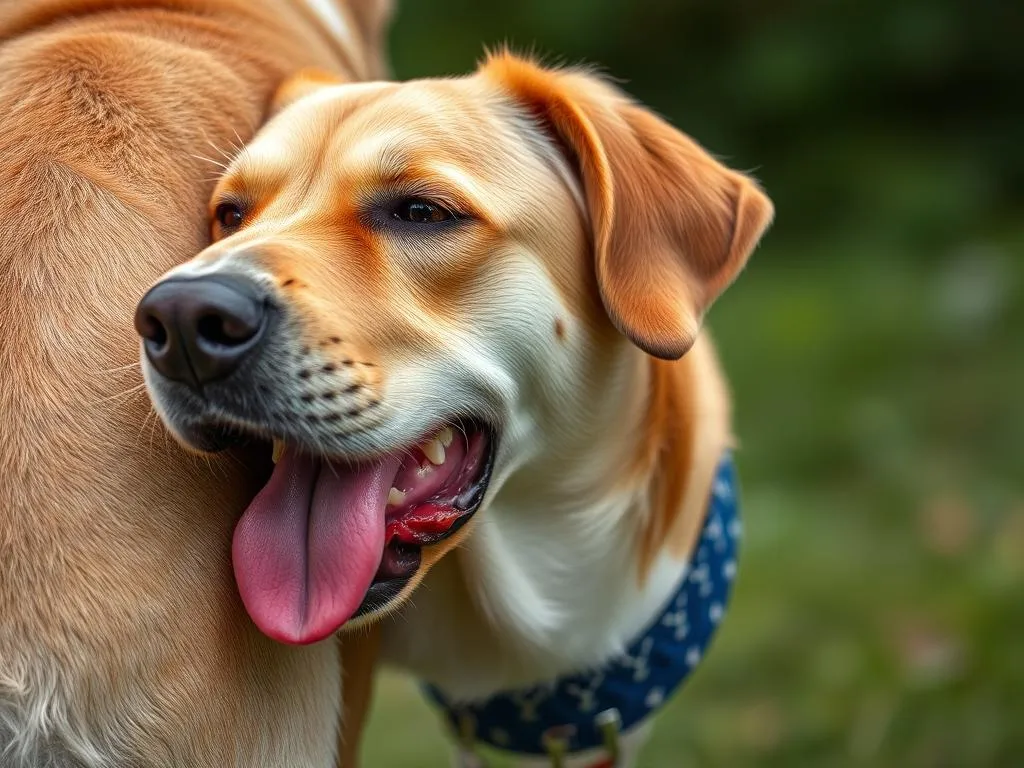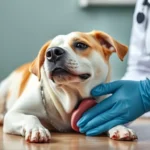
Maintaining your dog’s health is essential for their happiness and longevity. One common behavior that often raises eyebrows among dog owners is when their furry friends engage in frequent butt licking. This article delves into the reasons behind this behavior and helps you understand when it might be time to consult a veterinarian.
Understanding Dog Behavior
Normal Dog Grooming Habits
Dogs are naturally inclined to groom themselves, which includes licking various parts of their bodies. Butt licking is a part of this grooming process, as dogs tend to keep their rear area clean. This behavior is crucial for their hygiene and comfort. However, while some licking is normal, it is essential to differentiate between standard grooming habits and excessive behavior that could indicate underlying issues.
When Grooming Becomes Excessive
Excessive licking can be defined as a behavior that appears to be compulsive and occurs more frequently than usual. If your dog is licking their butt excessively, it could be a sign of discomfort or an underlying health issue. Observing changes in licking behavior, such as increased frequency or duration, can provide vital clues about your dog’s well-being.
Common Reasons for Butt Licking
Allergies
One of the most common reasons for butt licking is allergies. Dogs can suffer from different types of allergies, including:
- Food Allergies: Certain ingredients in dog food can trigger allergic reactions, leading to itching and discomfort.
- Environmental Allergies: Pollen, dust mites, and mold can cause dogs to develop allergies, resulting in skin irritation.
Symptoms of allergies may include redness, swelling, and excessive scratching or licking. If you suspect allergies, it is essential to consult your vet for proper diagnosis and treatment.
Parasites
Another frequent cause of butt licking is the presence of parasites. Common culprits include:
- Fleas: These tiny pests can cause severe itching and discomfort, leading to excessive licking.
- Ticks: While ticks are more associated with bites, they can also cause skin irritation.
- Worms: Intestinal parasites can lead to discomfort in the anal area, prompting your dog to lick.
Regularly checking for parasites and maintaining preventive measures, such as flea and tick treatments, is crucial for your dog’s health.
Skin Conditions
Skin issues such as dermatitis or hot spots can lead to discomfort in your dog, prompting them to lick their butt excessively. Symptoms of skin conditions may include:
- Red, inflamed skin
- Scabs or sores
- Hair loss
Treatment for skin conditions can involve topical ointments, changes in diet, or medications prescribed by your veterinarian.
Anal Gland Issues
Dogs have two anal glands located near their anus, which can become impacted or infected. If your dog is licking their butt frequently, it may indicate anal gland problems. Signs include:
- Scooting on the floor
- A foul odor
- Swelling around the anus
If you notice these symptoms, it’s essential to seek veterinary help, as anal gland issues can lead to more severe complications if left untreated.
Infections
Both bacterial and fungal infections can cause significant discomfort, leading to excessive licking. Signs of infection may include:
- Redness and swelling
- Discharge or odor
- Pain or sensitivity in the affected area
Prompt veterinary attention is necessary for diagnosis and treatment, which may include antibiotics or antifungal medications.
Behavioral Issues
Stress and anxiety can also manifest in dogs as excessive butt licking. Changes in environment, routine, or the addition of new pets can lead to anxiety. It’s essential to recognize the signs of stress in your dog, which can include:
- Destructive behavior
- Excessive barking
- Changes in eating habits
Addressing anxiety-related behaviors often involves providing mental stimulation, ensuring a secure environment, and sometimes seeking the advice of a professional trainer or behaviorist.
Diagnosing the Problem
Observational Techniques
Monitoring your dog’s behavior can provide insights into their health. Pay attention to the frequency, duration, and context of licking. Take note of any other symptoms, such as changes in appetite, energy levels, or bathroom habits, as these can help your veterinarian make an accurate diagnosis.
Veterinary Consultation
If you notice excessive butt licking, it’s time to consult a veterinarian. They will likely perform a thorough examination, which may include:
- Skin Tests: To check for allergies or infections.
- Fecal Exams: To identify parasites.
- Medical History: Gathering information about your dog’s diet, environment, and any recent changes.
A comprehensive approach will help pinpoint the underlying cause of your dog’s behavior.
Treatment Options
Home Remedies
For minor issues, some home remedies may offer relief. Options include:
- Oatmeal Baths: These can soothe irritated skin.
- Apple Cider Vinegar: Diluted vinegar can help with minor skin irritations (always consult your vet before trying new treatments).
However, it’s essential to consult your veterinarian before implementing any home remedies to ensure they’re safe and appropriate for your dog’s specific condition.
Veterinary Treatments
For more serious issues, your veterinarian may prescribe:
- Medications: Such as antihistamines for allergies or antibiotics for infections.
- Anal Gland Treatments: If your dog has anal gland issues, your vet may express the glands or prescribe treatments to prevent future problems.
- Dietary Changes: If allergies are suspected, switching to a hypoallergenic diet may be necessary.
Following your veterinarian’s recommendations for treatment can significantly improve your dog’s well-being.
Preventive Measures
Regular Veterinary Check-ups
Routine veterinary exams are crucial for early detection of potential health issues. Regular check-ups can help identify problems before they escalate, ensuring your dog remains healthy and happy.
Proper Grooming
Maintaining your dog’s hygiene through regular grooming is vital. This includes:
- Bathing: Regular baths can help remove allergens and parasites.
- Brushing: Combing your dog’s coat reduces shedding and helps you spot any skin issues.
Professional grooming can also be beneficial, particularly for breeds that require more intensive coat care.
Nutrition and Diet
A balanced diet plays a significant role in your dog’s overall health. Look for high-quality dog food rich in essential nutrients. Certain foods may also help with skin and allergy issues, so discussing dietary options with your vet is a good idea.
Parasite Prevention
Regular flea and tick treatments are critical for preventing infestations. Use veterinarian-recommended products and keep your dog’s living environment clean to reduce exposure to parasites.
Conclusion
Excessive butt licking in dogs can be a sign of various health issues, from allergies to infections and behavioral problems. It’s essential to monitor your dog’s behavior and seek veterinary advice when necessary. Proactive dog health care not only addresses immediate concerns but also promotes long-term well-being for your furry friend. Regular check-ups, proper grooming, and a balanced diet are key components of maintaining your dog’s health and happiness.









